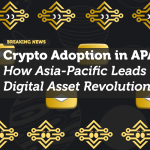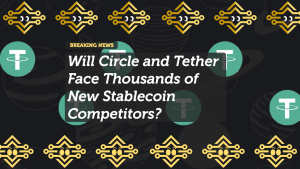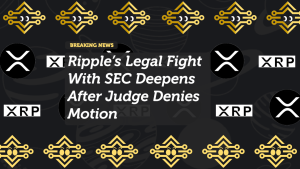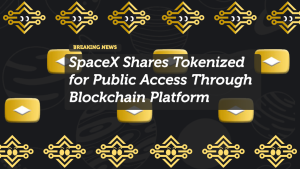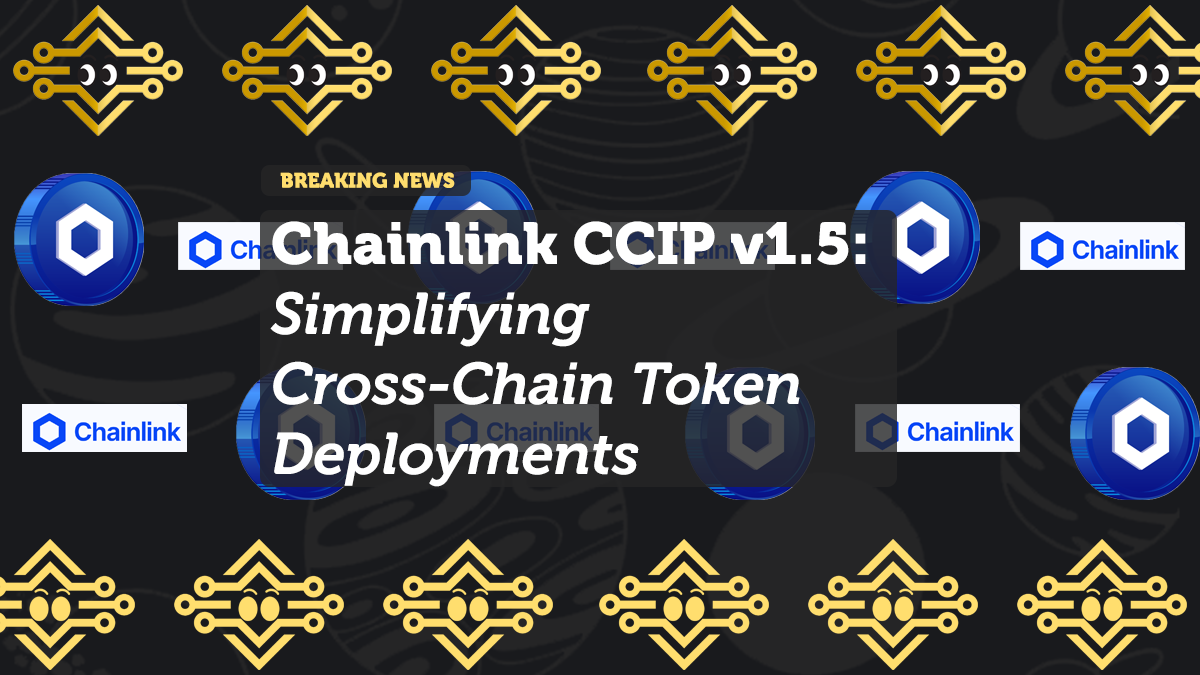
Chainlink CCIP v1.5: Simplifying Cross-Chain Token Deployments
Chainlink, the leading blockchain oracle network, has made a massive stride with the release of CCIP v1.5 (Cross-Chain Interoperability Protocol). This upgrade allows developers to deploy or upgrade tokens into Cross-Chain Tokens (CCTs) in minutes, eliminating the technical complexity of cross-chain token management.
With support for over 20 blockchains, including Ethereum, Avalanche, and Shibarium, and a no-code, self-serve deployment model, CCIP v1.5 is poised to redefine blockchain interoperability. Let’s dive into the key aspects of this groundbreaking update, recent integrations, and Chainlink’s growing influence in the blockchain ecosystem.
1. CCIP v1.5: Simplifying Cross-Chain Token Management
What’s New in CCIP v1.5?
The CCIP v1.5 upgrade simplifies the process of making tokens interoperable across multiple blockchains by enabling self-serve, no-code deployments.
Key Features:
- No-Code Deployment: Developers can now upgrade tokens to CCTs without any coding experience, reducing the barriers to entry for smaller teams and projects.
- Cross-Chain in Minutes: Tokens can go cross-chain in a matter of minutes, providing faster access to liquidity and broader adoption.
- Enhanced Security: Leveraging Chainlink’s decentralized infrastructure ensures high levels of security and reliability, addressing a key concern for cross-chain interactions.
Why Is This Important?
Previously, deploying cross-chain tokens required significant technical expertise and resources, making it difficult for smaller developers to participate. CCIP v1.5 democratizes this process, encouraging innovation and adoption across DeFi and blockchain ecosystems.
2. Expanding Adoption: 8 New Integrations Across 7 Blockchains
In addition to CCIP v1.5, Chainlink has expanded its adoption across 8 new integrations spanning 7 blockchains:
Blockchains Added:
- Aptos
- Arbitrum
- Avalanche
- Base
- Ethereum
- Plume Network
- Shibarium
These integrations highlight Chainlink’s versatility as the go-to solution for blockchain interoperability and decentralized oracle services.
Use Cases of These Integrations:
- DeFi Expansion: Bringing real-time price feeds and automation to protocols.
- NFT and Gaming Ecosystems: Supporting cross-chain NFT marketplaces and blockchain-based games.
- Institutional Applications: Enhancing enterprise-grade solutions like tokenized financial assets and blockchain-based trade systems.
3. Integration with Aptos: First Move Chain Partnership
The integration of Chainlink Data Feeds on Aptos marks a significant milestone as the first Move-based blockchain to adopt Chainlink’s oracle network.
Benefits for Aptos Developers:
- Off-Chain Data Access: Real-world data for building feature-rich dApps.
- DeFi Infrastructure: Enable lending platforms, AMMs, and prediction markets using reliable price feeds.
- Improved Security: Chainlink’s robust architecture ensures trusted interactions across the network.
This partnership positions Aptos as a promising hub for innovative decentralized applications.
4. Chainlink in Traditional Finance
Beyond DeFi, Chainlink is making headway in traditional finance by collaborating with major institutions like Swift, Euroclear, and DTCC.
Key Partnerships and Projects:
- Swift Integration: Testing tokenized asset transfers across blockchains.
- Euroclear Collaboration: Bringing blockchain efficiency to financial market infrastructures.
- CBDCs: Chainlink is actively contributing to the Central Bank of Brazil’s CBDC project in partnership with Microsoft, highlighting its role in shaping the future of digital currencies.
These developments showcase Chainlink’s ability to bridge decentralized technologies with traditional finance systems, unlocking vast market potential.
5. LINK Token Gains ‘S Tier’ Status
With all these advancements, Chainlink’s native token, LINK, has gained widespread recognition, recently moving into the ‘S Tier’ in crypto tier rankings.
Market Sentiment Indicators:
- Increased Adoption: Growing demand for LINK-driven solutions reflects strong developer and institutional interest.
- Price Action: LINK has shown resilience amid broader market fluctuations, with analysts predicting long-term growth.
This surge in sentiment indicates that Chainlink is increasingly viewed as essential infrastructure for blockchain ecosystems.
6. Product Innovations: Driving DeFi Growth
Chainlink continues to roll out new features to enhance its offerings for decentralized finance:
Product Highlights:
- Chainlink Smart Value Recapture (SVR): Advanced capabilities for DeFi platforms to optimize value capture.
- Improved Automation Tools: Simplify complex processes for developers.
- Enhanced Data Feeds: Providing faster and more accurate real-world data for smart contracts.
These updates align with Chainlink’s mission to support the growing complexity and scalability needs of the DeFi sector.
7. Broader Implications of Chainlink’s Growth
Chainlink’s advancements, particularly CCIP v1.5 and its integrations, highlight its growing role as a critical infrastructure provider for both blockchain and traditional financial systems.
What Does This Mean for Developers?
- Lower Barriers: Easier access to tools and resources for cross-chain development.
- Faster Innovation: No-code deployments and automation tools enable rapid dApp iteration.
- Access to Ecosystems: Integration with 20+ blockchains creates new opportunities for collaboration and adoption.
What Does This Mean for Institutions?
- Increased Confidence: Proven reliability and partnerships with financial institutions signal readiness for large-scale adoption.
- Interoperability Solutions: CCIP bridges the gap between siloed blockchain networks and global financial systems.
Conclusion: Chainlink’s Vision for a Cross-Chain Future
With CCIP v1.5, Chainlink has once again demonstrated its ability to innovate and meet the needs of the ever-evolving blockchain ecosystem. By simplifying cross-chain tokenization and expanding its network of integrations, Chainlink is solidifying its position as a cornerstone of blockchain interoperability.
As Chainlink continues to expand its capabilities into DeFi, NFTs, and traditional finance, it’s clear that the platform is not just building for today’s needs but shaping the future of a seamless, interconnected blockchain ecosystem.









